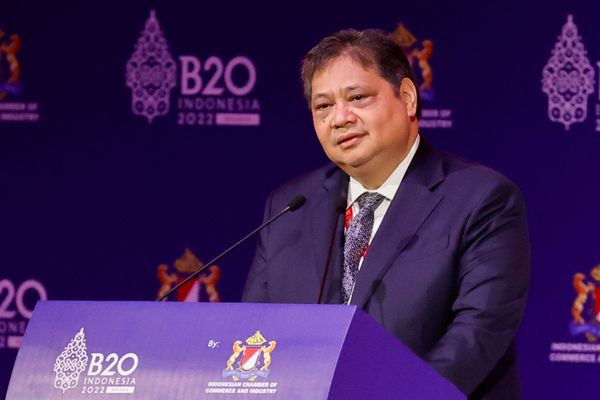JAKARTA, June 8 — Indonesia has said that free trade negotiations with the European Union (EU), which have been ongoing for nine years, are expected to be concluded by the end of June.
Coordinating Minister for Economic Affairs Airlangga Hartarto met with EU Commissioner for Trade Maroš Šefčovič in Brussels on Friday.
"Indonesia and the European Union have agreed to conclude outstanding issues, and we are ready to announce a conclusion of substantial negotiations by the end of June 2025," he said in a statement yesterday.
Indonesia will get zero tariffs for 80 per cent of its export products to the EU and removal of non-tariff barriers, as it pushes for bigger market access for footwear, garments, palm oil and fishery products, Airlanga told a press conference later yesterday.
The EU has discussed Jakarta's rules on mandatory use of local content in products sold in the Indonesian market, the automotive industry, trade of critical minerals, and investment facilities.
Indonesia and the EU have previously disagreed on EU trade rules for products with potential links to deforestation, which could impact Indonesian palm oil.
He said the bloc's deforestation rules were not part of the free trade negotiations, but Šefčovič had "promised to provide special treatment towards Indonesia regarding deforestation." Airlanga did not elaborate.
EU ambassador to Indonesia Denis Chaibi said that talks were ongoing and "we will communicate in detail when we have an outcome." He did not respond to a question about the special treatment.
The EU is Indonesia's fifth-biggest trade partner, with total trade between the two reaching €27.3 billion (RM150.4 billion) last year, according to the EU. Exports from the bloc were worth €9.7 billion (RM46.92 billion) in 2024, and it imported €17.5 billion (RM84.65 billion) worth from Indonesia.
Airlangga noted that Indonesian exports to the bloc could increase by more than 50 per cent within three to four years after the trade deal takes effect.
Indonesian officials have been motivated to accelerate talks on free trade agreements, keen to diversify the country's export destinations as they deal with United States tariff challenges.
— Reuters


